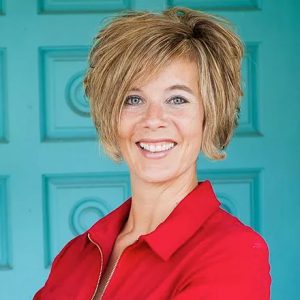Introducing OCD Recovery Consultant Chrissie Hodges
Welcome to another first recurring blog topic! Once every 2-3 months, we’re interviewing a peer support worker currently employed in Colorado. We want to give future workers an idea of what they can expect from their future careers. Hopefully you’ll find some valuable advice from those already in the workforce.
 This month, we’re featuring OCD Recovery Consultant Chrissie Hodges, founder of Treatment for OCD and author of PURE OCD: The Invisible Side of Obsessive-Compulsive Disorder. When she isn’t raising awareness about Pure O through her speaking and writing, she works as a self-employed, one-on-one peer supporter and information/referral resource for individuals across the globe who are experiencing OCD.
This month, we’re featuring OCD Recovery Consultant Chrissie Hodges, founder of Treatment for OCD and author of PURE OCD: The Invisible Side of Obsessive-Compulsive Disorder. When she isn’t raising awareness about Pure O through her speaking and writing, she works as a self-employed, one-on-one peer supporter and information/referral resource for individuals across the globe who are experiencing OCD.
How did you get started in peer support work?
Chrissie began her work as a peer support worker 5-6 years ago, during her work as a mental health advocate. By sharing her story, she attracted attention from others with similar experiences who wanted advice. She found purpose in the work and decided to pursue it as a career, first beginning as an independent consultant and then receiving training at her former place of employment. Recently, she has decided to return to self-employment.
What do you do day-to-day as a peer supporter?
A typical work day for Chrissie is unpredictable, but there are a few regular activities that make up her work. She works with clients across the globe via Skype and FaceTime, but also meets a few clients in person throughout the Denver Metro area. She often makes presentations about OCD and peer support work to audiences like sheriff’s departments and high schools. A large portion of her work is done from home, writing and speaking to clients worldwide.
What do you like about the job and how does it impact your own recovery?
Chrissie says that her favorite part of the job is hearing other people’s stories and being able to tell them “me too.” The story sharing is beneficial to her own recovery as well. She says that the mutual support offered by this line of work is the only reason she is as far into recovery as she is. She defines her recovery process as having two phases. The first was the medical recovery, during which she learned about her diagnosis and engaged in traditional treatment. The second phase, the emotional recovery, came much later and with the help and support of peers.
What advice do you have for new or prospective peer support workers?
Chrissie believes passionately in the unique value of peer supporters in recovery and encourages anyone interested in the work to pursue it. However, she also warns that peer work is challenging. She says it has tested her more than anything else she has ever done. Her biggest piece of advice to new peer support workers is that they should ensure that they have their own support network in place. This could be through their employer or of their own making. She says that seeking support from her colleagues on a regular basis is key to helping her maintain work-life balance.
Learn more:
To contact Chrissie, please visit her website. If you’re interested in becoming a peer support worker, check out our training program! We are the only entirely peer-operated organization that offers this training.
